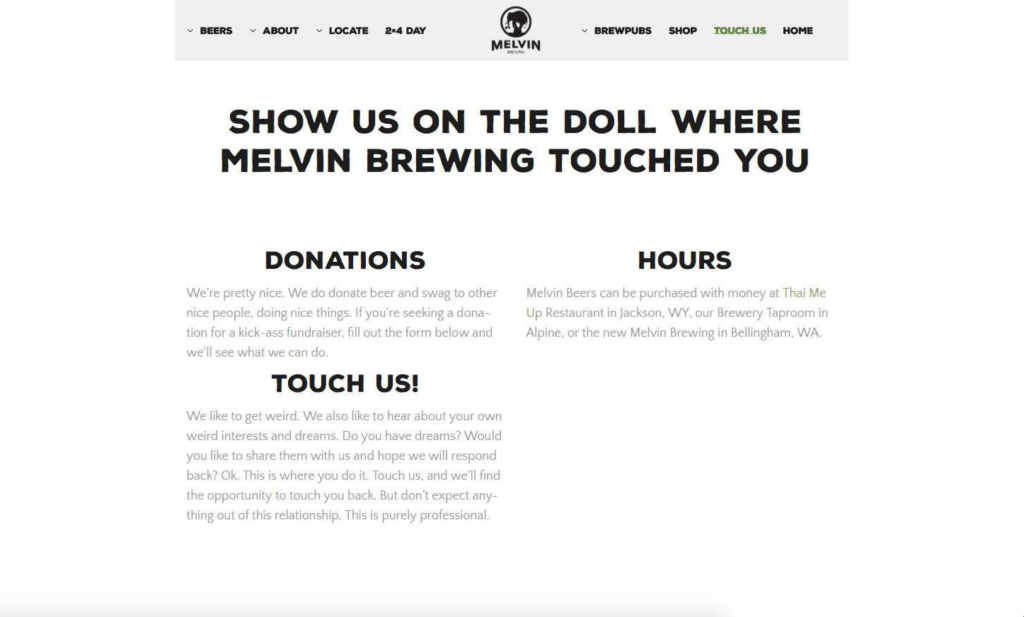Last month, Founders Brewing introduced Solid Gold, a “premium lager” described by the brewery as a risky and rebellious take on a classic lager.
Also in February, Firestone Walker announced the launch of its simply named, simple-drinker: Firestone Lager. It came with more fanfare than a triple-dry-hopped triple IPA. This lager got its own website, Instagram account, and Spotify playlist, complete with millennial-facing sparkly unicorn aesthetic.
Both craft lagers make great stand-ins for a Coors Light.
Are they onto something here? Or are brewers with hefty financial backing trying to force beer’s next trend? (Firestone is owned by Duvel Moortgat, which is technically considered a craft brewer by the Brewers Association. Founders is partially owned by Mahou San Miguel, which is not.)
Speaking with Kings County Brewers Collective (KCBC) co-founder, Zack Kinney at a recent tap takeover during New York City Beer Week, I gained a bit of brewers’ perspective on pilsners and lagers becoming the next craft beer trend.
Short answer? No. “IPAs have at least five years-plus,” Kinney said. Another NYC brewer agreed.
And they’re right. At the moment, IPAs are still, by far, the most consumed craft beer style in America.
What Founders, Firestone Walker, and others are doing is appealing to two key markets: macro beer drinkers with a sense of adventure (e.g., someone who thinks Stella is fancy), and beer drinkers beyond the “hop head” (e.g., brewers, bartenders, and other industry folk — cough: writers — who sometimes just want to drink a light lager).
I for one am a fan of this dual-pronged infiltration. Think of the possibilities! Your buddy shows up to a bachelor party with a 15-pack of Founders Solid Gold instead of a case of Bud Light. Your next boilermaker could be chased with a Firestone Walker instead of a PBR.
But as the NEIPA showed us, you can’t force trends. The majority of craft beer consumers are very, very, very much still in love with IPAs. Craft macro lagers will happen for some of us, but the crowd-pleasing premium lager is not poised to win over the Untappd addicts just yet.
Becoming a Cicerone Just Got Easier (or at Least, Cheaper)
In exciting news for us beer nerds, the previously prohibitively expensive Cicerone Certification Program has restructured its pricing. It is now considerably more affordable.
Although one can certainly study for the Cicerone exam on one’s own, Cicerone offers the “Road to Cicerone,” a program of coursework and study materials that previously cost $99 per course for four courses, a total of close to $400. Each package included a coursebook, online discussion forum access, and a 72-question multiple choice exam.
Now, individuals can purchase the coursebook ($39) and the exam ($29) separately, or both ($59). The forum part is being dropped (because who wants a 1990s-era platform for misinformation and conversation?).
“The Road to Cicerone coursebooks represent a valuable study resource for beer professionals,” Ray Daniels, founder and director of the Cicerone Certification Program, said in a press release. “With these changes, they’ll be easier to access and useful to a wider range of Cicerone participants.”
He added, “We found that some people wanted just the coursebook or just the exam. This allows us to price each item individually so that people can buy only what they want and need.”
Let me just say, you certainly don’t have to be a Cicerone to be a beer expert. Education and experience lead to expertise in any field, with or without an exam and a price tag. (In fact, this certification has only been around for 10 years.) But it is a worthy effort, both for the bettering of beer education as a whole, and for the elevation and proper treatment of beer in a service setting. I’m pretty amped to see it become more accessible price-wise for those looking to achieve the title. Who knows? Maybe I’ll even come around to it. But don’t you dare expect me to pay for grad school.
Melvin Brewing Admits ‘Acting Inappropriately’ Regarding Sexual Misconduct Allegations
They’re trendy, they’re artistic, and they make good beer, but Melvin Brewing is in the news for a different reason this week: It’s the latest to show up in what has become an imaginary RSS feed of sexist and misogynist craft brewers.
Last week, Washington Beer Blog published a blog post about an allegation involving an employee of Mevlin Brewpub and an employee of a neighboring brewery, Menace Brewing, both located in Bellingham, Wash. (Melvin Brewing started its first brewpub in Jackson Hole, Wyo., operates a production brewery and taproom in Alpine, Wyo., and an additional brewpub in Bellingham, Wash.).
In the blog post, Kendall Jones writes that he had been “informed of an incident” several months ago, in December 2017, but delayed publishing until the involved parties directly contacted the blog. Now that the incident is out in the open, Jones spilled the beans.
The gist of it is, a Melvin employee — who may or may not be a co-founder — “acted inappropriately” when he allegedly touched a server at Menace Brewing on November 20, 2017. An email was reportedly sent to Melvin Brewing employees on January 11, 2018 and leaked to Washington Beer Blog on January 17, 2018, “acknowledging that the incident had in fact occurred.”
Also in the email, Washington Beer Blog writes, “Melvin Brewing described the incident as follows: ‘The employee of Menace Brewing stated that while addressing guests at [the Melvin Brewing employee’s] table, [the Melvin Brewing employee] put his hand around her waist, then moved his hand lower and touched her butt and upper thigh area.’” The Melvin employee had also supposedly been “sneaking drinks” (his own beer) into the Menace brewery.
This may seem like an isolated incident, but it’s actually part of what is clearly a larger problem at Melvin. Exhibit A: Melvin Brewing’s former contact page on its website, which has since been replaced.
It originally read (via a menu navigation that read “Touch Us” rather than “Contact Us”): “SHOW US ON THE DOLL WHERE MELVIN BREWING TOUCHED YOU.”
Below, in another “TOUCH US!” subheader: “Touch us, and we’ll find the opportunity to touch you back. But don’t expect anything out of this relationship. This is purely professional.” This was followed by the typical contact form.
This is not professional. Brewers like to have fun and flex their senses of humor, and some employ off-the-cuff, satirical branding and marketing. That’s all great, for the most part. But poking fun at child sexual abuse? Not a good look. It’s alarming, it’s disgusting, and, frankly, it’s embarrassing for the craft brewing community.
Melvin pinned the following apology to its Facebook page on March 9:
The Bellingham Herald reported on Monday that Melvin Brewpub in Bellingham had been vandalized on Saturday.
The first step to fixing the beer industry’s sexism is identifying it, and making immediate changes to the facets of company culture that permit it. You can’t cure a disease until you see the symptoms.

